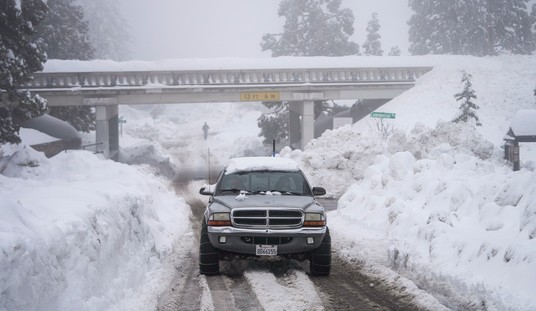Here we go again. Republicans talk incessantly about the need to cut the deficit, yet they are once again proposing a policy that will actually augment the deficit.
On March 31, authorization for transportation spending, along with its accompanying revenue source – the federal gasoline tax – is set to expire. Republicans in the House and a bipartisan group in the Senate have introduced dueling proposals to fund long-term transportation projects, in lieu of the short-term bills that have been enacted since 2007. Unfortunately, the Republican House bill is not much better than the Senate bill.
One need not be a staunch conservative to appreciate how inane it is to collect gasoline taxes from all 50 states into one pool, only to be doled out randomly for every state’s personal transportation project. Ever since the Interstate Highway System was completed almost 20 years ago, there has been no rational purpose for the current top-down federal control over transportation. Successive congresses have diverted as much as 38% of the gas tax revenue to mass transit projects and wasteful endeavors for specific states. The net result is that some states are donors (contribute more), while other states are recipients (receive more in funding than they contribute).
We need to abolish the federal gas tax, and devolve all responsibility and taxes for transportation projects to the states. The two bills percolating through Congress will double down on failed policies, add to the debt, perpetuate inefficiencies in highway construction, continue to encumber traffic, and preclude any devolution of responsibility to the states.
The Senate bill, S. 1813, funds transportation at $109 billion over two-years, $54.5 billion per year. The House bill, despite accolades from Republican leadership, is only slightly smaller than the Senate version. The House bill, HR 7, will authorize $260 billion over 5 years, $52 billion per year. Both bills continue to divert about 20% of the gas tax revenue to fund liberal mass transit projects. But here’s the kicker: according to CBO, the Highway Trust Fund will only take in $187 billion in revenue over 5 years. Both bills rely on using all unspent funds in the trust fund, totaling about $20 billion. We will still incur a $30-50 billion deficit over 5 years, and at least $136 billion over 10 years. Remember we already bailout out the trust fund in 2008 with general fund revenues to the tune of $35 billion.
But, fear not, Republicans plan to attach three bills authorizing drilling in ANWR, offshore, and in the western states. They pledge to use the revenue from the royalties to offset the deficit engendered by general fund transfers to the Highway Trust Fund. The problem is that these proposals are dead on arrival with the Democrats. Once we agree to the premise of higher transportation spending, and the Democrats jettison the drilling royalties, we will be left with a deficit once again.
This position mirrors the cycle of capitulation with the budget bills. Democrats propose some profligate legislative budget bill. Conservatives advocate that we uproot the entire premise by drawing a line in the sand on the principles that got us elected. Republican leaders eschew conservative principles and acquiesce to the premise that the Democrat budget is a priority too big to fail. They telegraph the message to Democrats that they will never let the budget bill fail, but promise to make them pay for it with reforms or other spending offsets. Democrats balk at the offsets. Finally, we are left agreeing to the spending without the offsets.
Moreover, if we run a perennial deficit in the trust fund, we will be permanently exposed to future hikes in the gas tax. The Chamber of Commerce and Big Labor are already joining in an unholy alliance to support a gas tax hike.
We must defeat the 847-page highway bill, and call upon Congress to devolve transportation authority to the states. At the very least, they should stick with the original House proposal to peg the cost of transportation spending to revenues from the gas tax. Why are we negotiating with ourselves again?














Join the conversation as a VIP Member